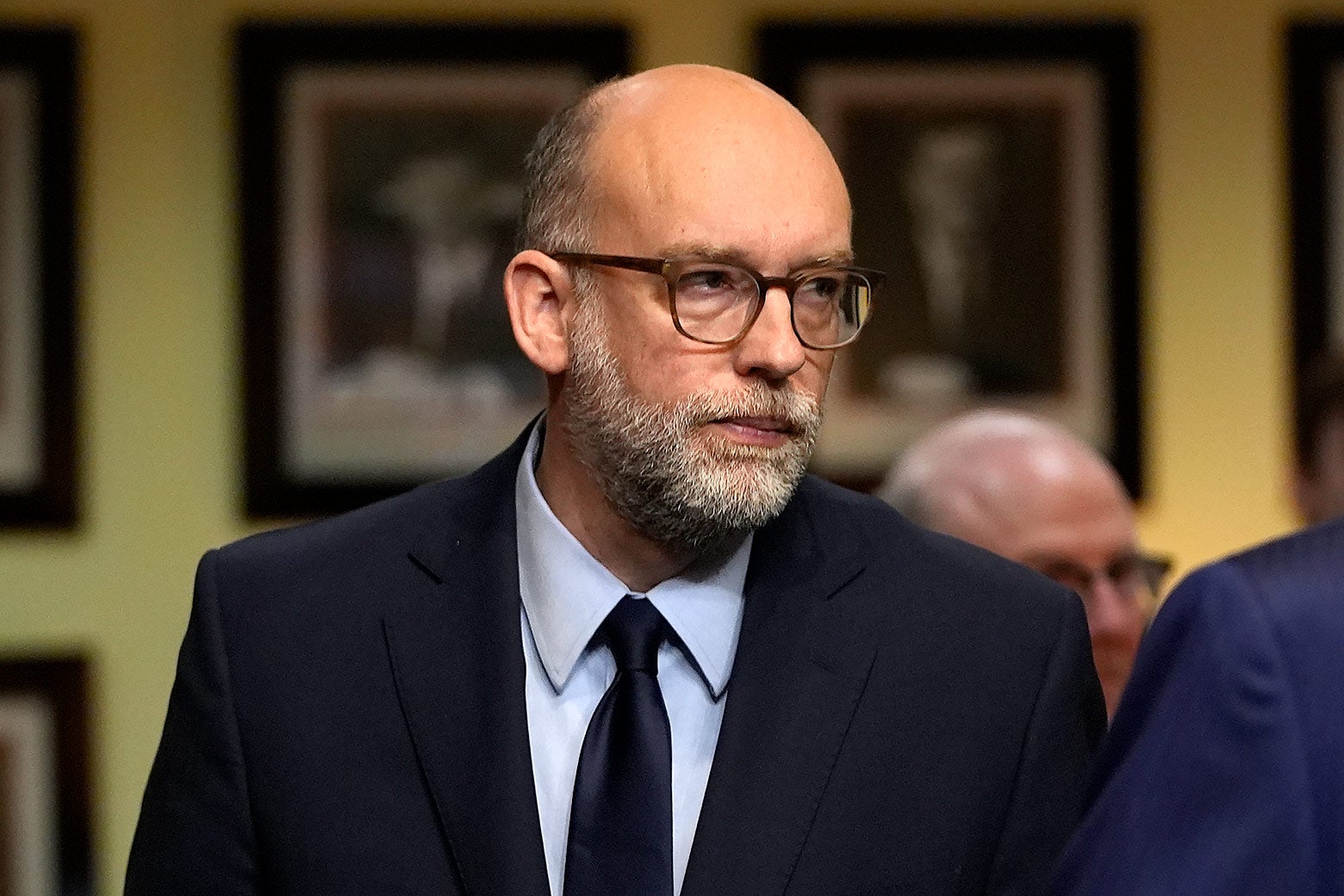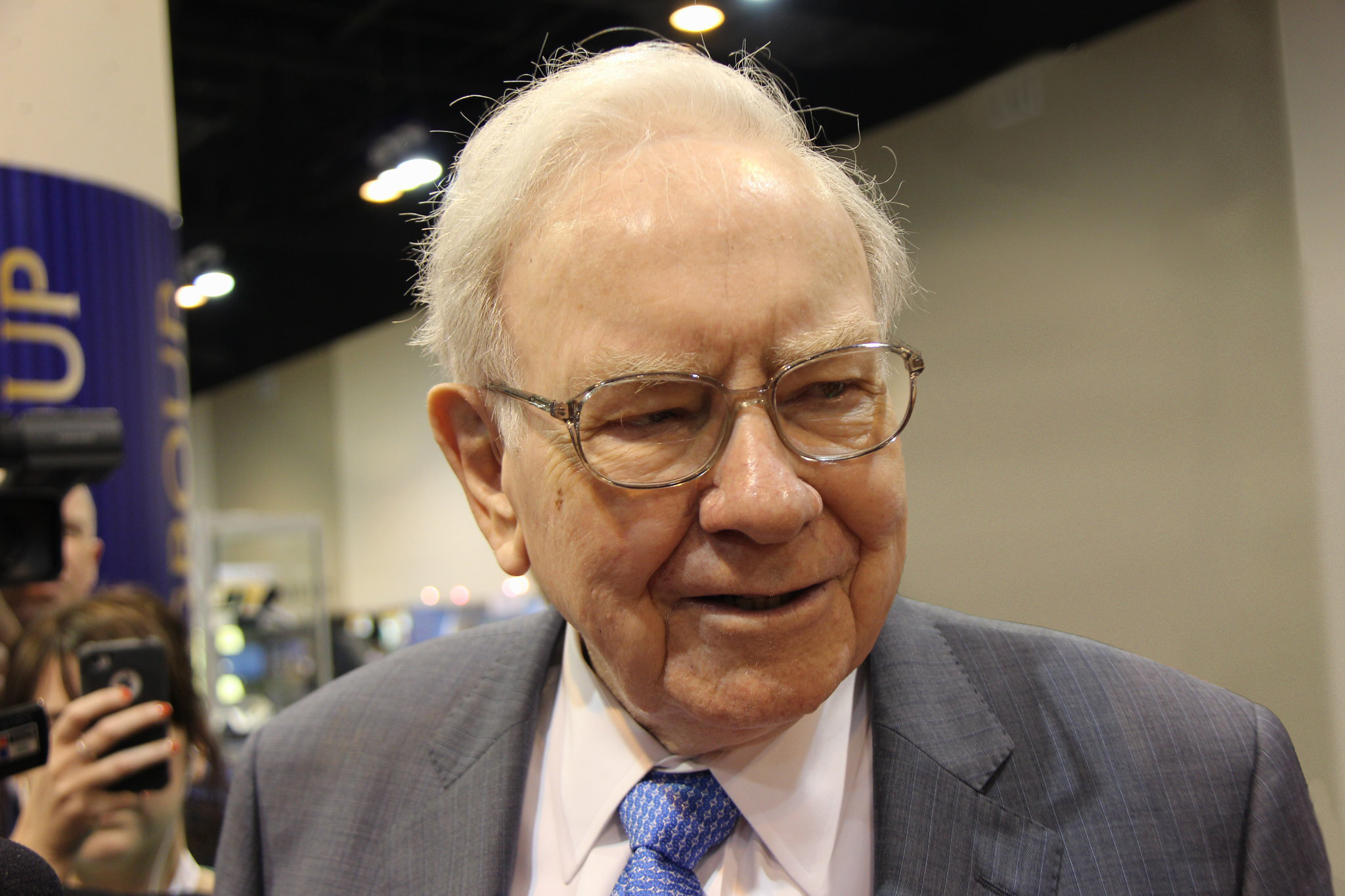Sign up for the Slatest to get the most insightful analysis, criticism, and advice out there, delivered to your inbox daily.
The assault on the federal government by Elon Musk’s DOGE organization has been furious, chaotic, and surprising in scope—but it’s not entirely unexpected. The first signs of Donald Trump’s ambitions to dismantle the government actually emerged during the end of his first term, when the Office of Management and Budget tried to use—but ran out of time to implement—his “Schedule F” executive order to strip employment protections from tens of thousands of government workers.
That move, back in 2020, was partly the work of Russell Vought, who is once again leading the OMB. In the four years that Trump was out of power, Vought was busy establishing the framework for the current attacks on the federal agencies and laying out plans for more kinglike powers for the president.
In this way, we can credit Vought—an avowed Christian nationalist and a key player in Trump’s first impeachment—for this moment just as much as Musk or the president.
As he explained in a 2024 speech reported on by ProPublica, Vought wanted the assault on civil servants to not just be dramatic but ruthless. “We want the bureaucrats to be traumatically affected,” he said. “When they wake up in the morning, we want them to not want to go to work because they are increasingly viewed as the villains. … We want to put them in trauma.”
This is not mere bluster from a culture war crank. Vought is a major power player in the MAGA policy world: He wrote Project 2025’s playbook for the administration’s first 180 days, drafted executive orders for the president to sign, and served as the policy director of the Republican National Committee’s official platform committee for 2024.
Vought termed his philosophy, as he laid it out in a 2022 article, “radical constitutionalism.” He argued that the left had brought the country into a “post constitutional moment” by expanding the “administrative state” and empowering “permanent, ‘expert’ civil servants.” The result was an unnatural version of the government that the founders would have abhorred: A relatively small cohort leads powerful congressional committees (“the committee barons”) and the nonelected career civil servants actually run the government, while the president and the majority of lawmakers hold little true power. His belief system is a mix of fantasy originalism and unitary executive theory—the idea that the president has total control over the executive branch, and agencies that administer the law should not act with any independence.
“The Right needs to throw off the precedents and legal paradigms that have wrongly developed over the last two hundred years and to study carefully the words of the Constitution and how the Founders would have responded in modern situations to the encroachments of other branches,” Vought wrote.
While he was at the Center for Renewing America, the think tank he founded during his private sector interregnum, Vought indicated a few concrete ways he could push his vision. He would create a “shadow” legal office to advise the president on how he could expand his powers. He would root out the “deep state” actors from the intelligence and law enforcement agencies who either investigated Trump’s alleged illegal behavior or served as a check on it. He would eliminate job protections for civil servants.
To apply pressure and hamstring the agencies’ work, he would have the president invoke his right to impound funds appropriated by Congress—to hold back from distributing all of an agency’s budget. (This was a power the president had before the Watergate scandal, but it has been illegal since.)
And he would have the president challenge the idea of independent agencies altogether, exerting authority over their priorities and pushing back on the idea of a Justice Department or Federal Reserve or Securities and Exchange Commission that acted under its own internal principles, with a mandate from Congress.
These ideas are everywhere in Trump’s executive orders and in Musk’s gutting of the agencies.
It’s also worth noting that Vought’s end goal isn’t just boosting Trump’s agenda: He specifically craves a Christian nationalist version of the United States.
He has said as much, in essays and in his work for the Heritage Foundation’s Project 2025, which he advised and for which he authored a chapter on the executive office of the president. (Vought was vice president of the Heritage Foundation’s advocacy arm before the first Trump administration. The Center for Renewing America was an advisory group for Project 2025.) In 2021, Vought wrote an article for Newsweek in which he proclaimed himself a “Christian nationalist,” vowed to preserve “our country’s Judeo-Christian heritage,” and argued that a “shared religious heritage” is essential to “being a nation.” America, he wrote, should be recognized as an explicitly Christian nation “where our rights and duties are understood to come from God” and where there is “an institutional separation between church and state, but not the separation of Christianity from its influence on government and society.”
He has pushed for abortion drugs to be made illegal, suggested that immigrants should have a “sense of the Judeo-Christian worldview” of the U.S., and described Trump as “God’s gift” to America. His think tank, which is dedicated to creating a country “for God,” opposes pornography and supports policies that would encourage families to have more children. He has called gender-inclusivity initiatives in education “transgender sewage” and was a leader in the anti-critical-race-theory crusades around the country.
Vought long ago established that he does not fear violating our democratic norms. During the first Trump administration, the OMB withheld military aid funds from Ukraine during Trump’s quid pro quo demands for Volodymyr Zelensky to investigate Joe and Hunter Biden—the incident that led to Trump’s first impeachment. Vought has argued the president should use the Insurrection Act to violently suppress protests. And he has continued to deny the outcome of the 2020 election, hiring Jeffrey Clark, a key “Stop the Steal” figure, for a CRA role.
Like Musk and Trump, Vought believes in breaking the system. Unlike them, he believes in doing so from an extremist religious position. It’s unclear whether his Christian nationalist worldview will take hold in the larger political machinations of the anti-bureaucracy movement. But regardless, it indicates that one of the architects of this moment feels not dispassionate pragmatism, but a kind of divine righteousness in inflicting a great “trauma” on our entire country.



